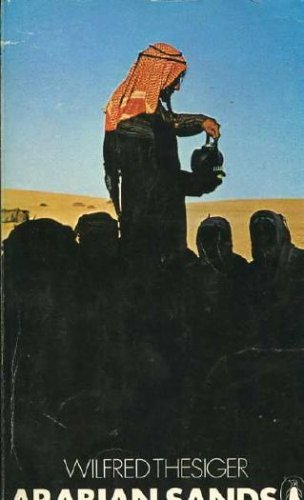Arabian Sands is a classic c20th account of physical endurance by Wilfred Thesiger, one of the great adventurers.

The book describes Thesiger’s travels across the Empty Quarter on the Arabian Peninsula. It was published more than 60 years ago but the writing is understated, with short sentences. This simultaneously makes it feel modern, and is reminiscent of Victorian British travellers who were very matter–of-fact and wrote lots of precise information. His writing style contrasts with his contemporary Eric Newby’s style of comic dialogue and faux-timidity (a style developed further by writers such as Bill Bryson).
Thesiger was substantial, and a model to other adventurers. He was born in Addis Ababa, which perhaps makes him impressed by superficial exoticism than his contemporaries. He came out of the high British Imperial culture (son of the British Consul General in Ethiopia, nephew of a Viceroy of India). He is sometimes seen as an inevitable Victorian explorer. Rory Stewart wrote the introduction to the recent Penguin edition, where he points out that Thesiger was younger than Picasso and Proust, and younger than his fellow Etonians Orwell (who fought for the Communists in Spain) and Aldous Huxley (who was taking drugs in California).
Thesiger had physical courage. He compared himself with British colonial officials who understood the local culture and undertook physical demanding, dangerous journeys without making a fuss about it. Jan Morris said it was “the clean hard matter of physical challenge that inspired [Thesiger], and his rejection of all contemporary palliatives took on a semi-mystical character of renunciation.” Thesiger himself writes: “I would rather be here starving as I was than sitting in a chair, replete with food, listening to the wireless and dependent on cars to take me through Arabia.”
He never stopped travelling – perhaps the aim was punishing travel itself, or exploration. He chose to renounce almost everything for the sake of freedom. Perhaps Stewart is correct that Thesiger’s belief of how a human life should best be lived is what makes him matter as a writer and a man.